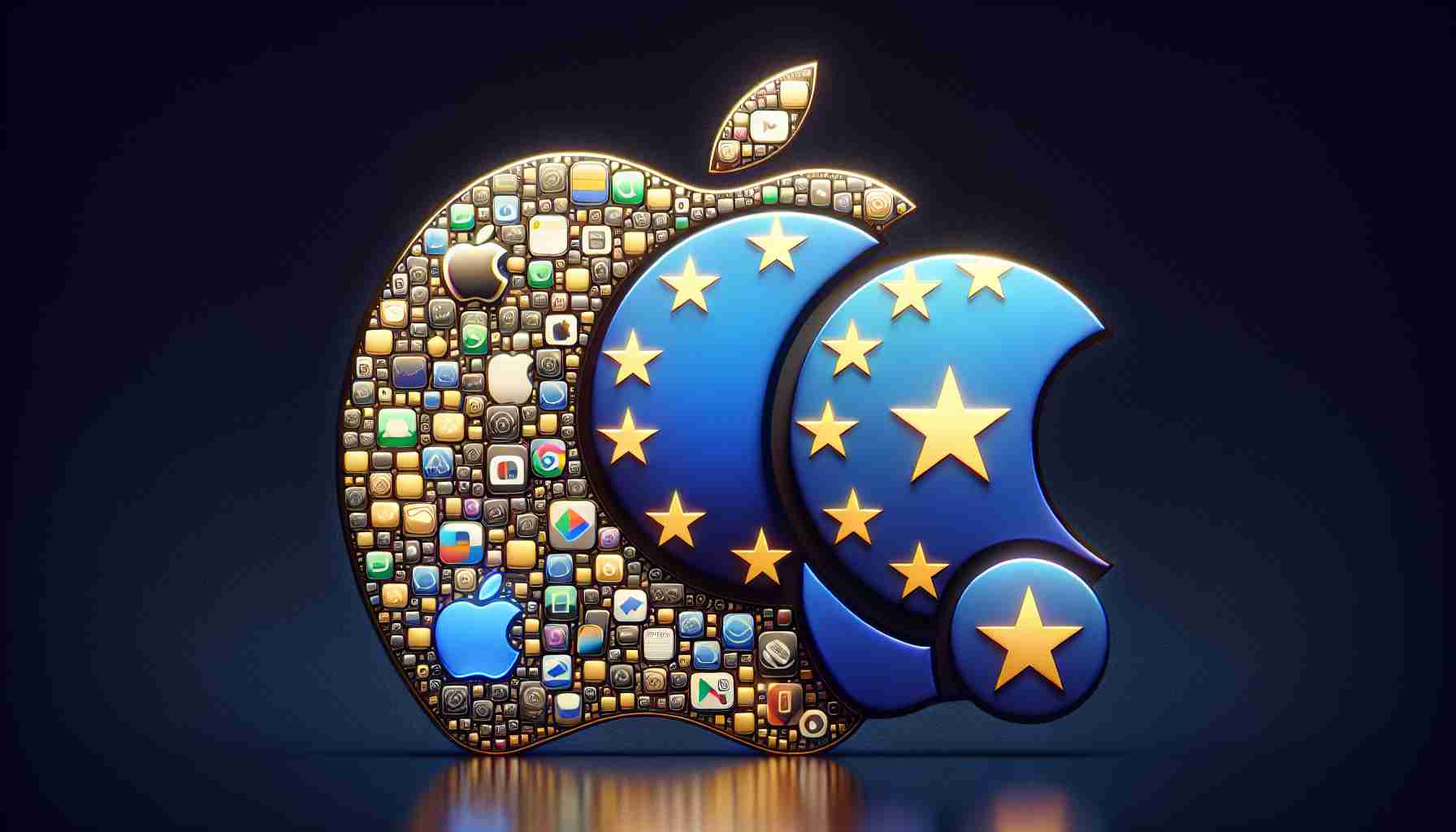Apple Inc. has announced today changes to the iOS system, Safari, and App Store in the European Union in order to comply with the EU Digital Markets Act. The most important change is to allow the use of alternative app stores in Europe in the upcoming iOS 17.4 update, which is scheduled for release in March.
The changes include over 600 new application programming interfaces, enhanced app analytics, and new features for alternative browser engines. These changes aim to transform app distribution and payment processing on iOS platforms in the EU.
The most significant change, which is the allowance of other app sellers, is not something Apple willingly wanted to do, but was compelled to do so. Reports of Apple considering the allowance of other app sellers date back to 2022 when the European Parliament and Council adopted the Digital Markets Act.
The EU sees this act as a way to put an end to what it calls unfair practices by companies that act as gatekeepers in the online platform economy. The company is subject to the act only when it has a significant impact on the internal market, achieves a certain annual turnover in the European Economic Area, and provides essential platform services in at least three EU countries.
Apple was then deemed a “gatekeeping” company and became subject to the law in September. Other companies recognized as gatekeepers include Alphabet Inc., Amazon.com Inc., ByteDance Ltd., the owner of TikTok, Meta Platforms Inc., and Microsoft Corp.
Moving on to January 2024, Apple, while aiming to comply with its legal requirements in the EU, is not doing so quietly and perhaps not straightforwardly. Instead of simply allowing other app sellers, Apple has stated that it is “implementing new safeguards that reduce – but do not eliminate – the new risks created by the Digital Markets Act for EU users.”
In order for a third-party app store to be allowed on iPhones, Apple requires developers to provide a “credit letter” backed by an A-rated financial institution, amounting to 1 million euros ($1.08 million), according to 9to5Mac. Mandatory fees of 0.50 euros for “basic technological service” per app installation in the first year will also be imposed on creators of other platforms.
In addition to the ultimate allowance of external apps in the EU, Apple has also announced changes regarding browser choice. Starting with iOS 17.4, Safari users in the EU will have a screen that allows them to choose their default browser from available options. Like all of Apple’s announcements today, the change is made reluctantly and only to comply with the Digital Markets Act.
Apple’s App Store is also undergoing a revolution in the EU to comply with the Digital Markets Act, allowing developers to use their own payment providers within their apps. Furthermore, EU apps can now enable users to purchase digital goods and services on the developer’s external website.
While allowing other app stores is a significant change, enabling other payment methods is equally important. Apple, like Google LLC, restricts the ways of making purchases through apps available in their stores, taking a 30% commission, which was the subject of the Epic Games Ltd. lawsuit against Apple in 2021. Although Epic Games lost its case against Apple, including its appeal, it won the case against Google for similar reasons.
The fact that Apple is now allowing other payment methods and other app stores in Europe raises questions as to why it cannot do the same in other jurisdictions.
This announcement also comes ahead of the anticipated antitrust case against Apple by the U.S. Department of Justice this year. The lawsuit is reportedly set to determine whether Apple engaged in unfair tactics to protect its market share for the iPhone, restrictions on access to the Apple Watch, restrictions on Tap to Pay technology, and concerns about competition in other areas.
FAQ:
1. What changes has Apple made to the iOS system, Safari, and App Store in the European Union?
– Apple has announced changes that will allow the use of alternative app stores in Europe, in compliance with the EU Digital Markets Act. The changes include new application programming interfaces, app analytics, and features for alternative browser engines.
2. What are the significant changes regarding Apple as a “gatekeeper”?
– Apple is compelled to allow other app sellers under the EU Digital Markets Act. To do so, the company requires developers to provide a “credit letter” backed by an A-rated financial institution and pay a fee of 0.50 euros for “basic technological service” per app installation.
3. What are the changes regarding browser choice in Safari?
– Safari users in the EU will have the option to choose their default browser from available options on a screen.
4. What changes are introduced by Apple in the App Store in the EU?
– Developers can now use their own payment providers in their apps and allow users to purchase digital goods and services on the developer’s external website.
5. Why is allowing other app stores and payment methods in Europe significant?
– Apple is compelled to make these changes under the EU Digital Markets Act, which aims to put an end to unfair practices by large companies acting as gatekeepers in the online platform economy.
6. Why can’t Apple make similar changes in other jurisdictions?
– Apple is able to make these changes in Europe due to the EU Digital Markets Act. Other jurisdictions may have different laws and regulations regarding digital markets.
Definitions:
– App Store: An online store where users can download applications for Apple devices.
– EU Digital Markets Act: Legal regulations introduced by the European Union to regulate the activities of companies acting as gatekeepers in the online platform economy.
– Developer: An individual or company responsible for creating and providing applications.
Suggested Links:
– Apple Official Website
– Apple Developer Website
The source of the article is from the blog aovotice.cz
